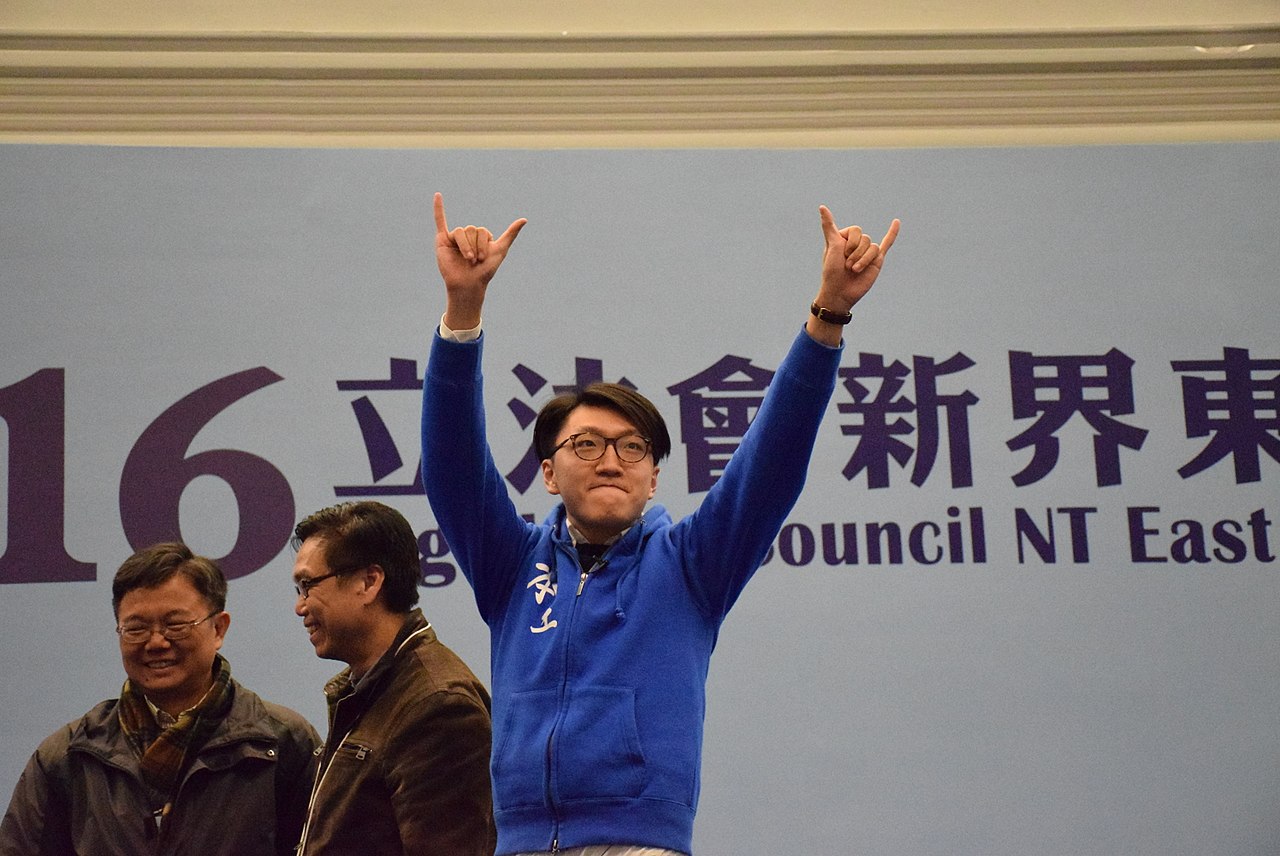As the leader of Hong Kong’s fledgling independence movement, Edward Leung gained a loyal following and hoped to be voted into office, riding a wave of public frustration with Beijing.
But his jailing Monday for rioting marks the end of a meteoric rise as city authorities crack down on any advocacy of a split with the mainland.
Leung had promoted using force to put pressure on Chinese authorities after the failure of the largely peaceful 2014 Umbrella Movement to win democratic reform for the semi-autonomous city.

Speaking to AFP in 2016, he spoke of an inevitable “war or battle”.
“Our way of protest is a forceful way and an effective way to put pressure on the Beijing government,” said Leung, who was at the time a philosophy student and founder of pro-independence party Hong Kong Indigenous.
He was sentenced to six years Monday for his role in violent clashes with police in February 2016 in the commercial district of Mong Kok, which involved “localist” activists who believe in a separate identity for Hong Kong in the face of interference by Beijing.
The protesters were dubbed “separatists” at the time by Chinese authorities.
Leung was unfazed, saying the movement’s ultimate goal was to build a “Hong Kong nation”.
His message struck a chord as concern grew that Hong Kong’s cherished freedoms were under threat in a number of areas, from politics to media and education.
In February 2016, Leung took 66,000 votes in a local by-election, seen as a huge victory for the independence movement even though he did not win.

That came soon after five Hong Kong booksellers known for gossipy titles about Chinese political leaders disappeared and resurfaced in custody on the mainland.
Thousands then turned out for Hong Kong’s first pro-independence rally in August 2016, with Leung one of the main organisers and speakers.
Beijing backlash
Since then, city authorities loyal to Beijing have sought to muzzle any advocacy of a split from China as President Xi Jinping puts heavy emphasis on the importance of territorial integrity.
Beijing and Hong Kong officials have repeatedly said advocating independence goes against the city’s mini-constitution, known as the Basic Law, and that independence activists could face legal consequences.
Leung was among several hopefuls banned from running for office in September 2016 public elections over their pro-independence views, despite signing a controversial new form declaring Hong Kong is an “inalienable” part of China.
He later walked into a government briefing for election candidates and raised his middle finger at the speakers before departing to cheers and chanting from hundreds of supporters outside.

Two pro-independence activists who were allowed to stand in the vote were later barred for protesting during their oaths of office, after an intervention from Beijing.
Four more moderate pro-democracy legislators were also subsequently disqualified from the partially-elected parliament.
A dejected Leung moved away from politics to study in the United States and announced he was stepping down as head of Hong Kong Indigenous at the end of last year to spend more time with his family before his trial.
He has been in custody since January after pleading guilty to assaulting a police officer during the 2016 clashes.
However, he still has a following in Hong Kong.
A film about his life, called “Lost in the Fumes” has been a sell-out at its numerous screenings at arts and community venues.

In the documentary, Leung expresses his misgivings over the world of politics and says he suffers from depression.
Director Nora Lam, who followed Leung closely for the film, said audiences saw him as a “metaphor for what Hong Kong has been through in the past few years”.
“Beyond politics, I think it’s rare to see someone’s fragility presented in a frank and open way,” she told AFP.
The phrase “Hong Kong’s hero, Edward Leung” appeared around the city at the start of his trial.
Leung turned 27 behind bars earlier this month.
